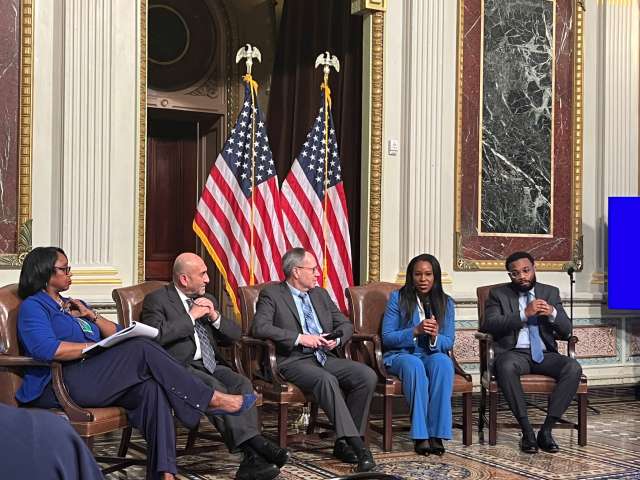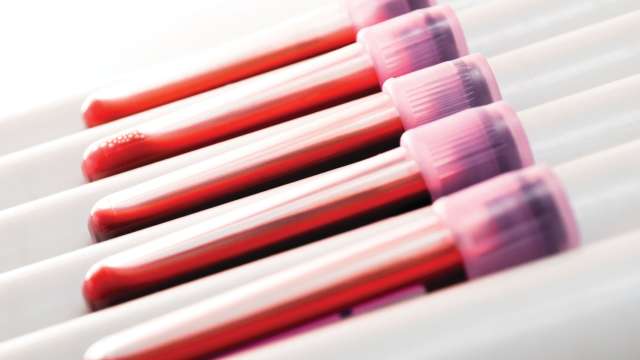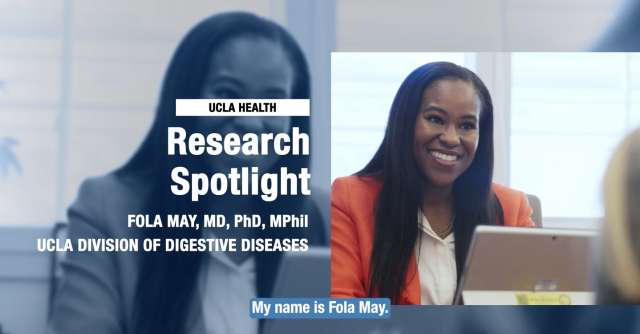May Lab
Focusing on improving outcomes for patients with digestive diseases
Colorectal cancer is now the leading cause of cancer death in people under 50
While the overall decline in cancer-related deaths is welcome news, the findings starkly highlight the worrying rise in colorectal cancer deaths among young people, said Dr. Folasade May.


Population health colorectal cancer screening strategies in adults aged 45 to 49 years
In a new study aimed at identifying the best approach to promote colorectal cancer screening in adults ages 45 to 49, UCLA researchers found that simply mailing a stool-based test directly to people's homes was the most effective strategy for increasing screening rates.
Dr. May joined other national health experts at White House Cancer Moonshot Colorectal Cancer Forum
She was an invited member for a panel at this event to discuss equitable access to high-quality cancer care and the need to invest in research to enable us to determine how to deliver the best care and perform effective outreach to underserved communities.

Latest news

May Lab wins top prizes at Department of Medicine Research Day 2025
Dr. May was mentor to two Division of Digestive Diseases award winners. Alexandra Thomson, MD, MPH, took first place in the junior faculty health services research category for "Evaluating the Performance of an EHR-Based Clinical Dashboard to Track Follow-Up Colonoscopy for Abnormal FIT," and Sigrid Young, MD, took third place in the trainee health services research category for "Sociodemographic Disparities in Survival from Localized versus Metastatic Gastric Cancer: A SEER-Based Analysis."

Dr. Fola May honored by the American Society for Clinical Investigation
Folasade P. May, MD, PhD, MPhil, was elected to the American Society of Clinical Investigation (ASCI). The ASCI is one of the oldest and most recognized medical honors societies and among the few focused on honoring the accomplishments of physician-scientists in making widely recognized research contributions that impact all aspects of medicine.

Blood tests show potential for colorectal cancer detection, but follow-up still falls short
A study led by investigators at the UCLA Health Jonsson Comprehensive Cancer Center revealed that although blood-based tests provide a more convenient option for colorectal cancer screening, only 49% of patients completed the crucial follow-up colonoscopy within six months.

“Meet the Researcher” – Folasade P. May, MD, PhD, MPhil
The UCLA Department of Medicine highlights the work of its researchers. Dr. May is featured in a segment in which she describes her research in colorectal cancer, which is now being diagnosed in patients at younger ages than had been typical in the past. She discusses the importance of connecting with patients and explains why UCLA is uniquely positioned to enable her to research ways to ensure that all people have access to the care they need for colorectal disease.
